The 2024 Euros, one of football's most widely anticipated and prestigious tournaments, gets underway on 14th June 2024. Proudly hosted by 3-time winners Germany, 24 nations will battle it out for a coveted place in the final, which will be staged at Berlin’s magnificent Olympiastadion on 14th July.
With 51 games being played across ten vibrant host cities, from the Bavarian charm of Munich to the cultural richness of Cologne, the 2024 Euros promises to be an unforgettable experience.
For those seeking the epitome of comfort and convenience, a bespoke group charter or private jet charter offers a highly efficient solution for corporate groups, clubs, and devoted fans keen to follow their team through the tournament.
Here, we’ll shine a spotlight on each exceptional city and its stadium.
Berlin: Olympiastadion Berlin
- Home Team: Hertha Berlin
- Capacity: 70,000
- Number of games: 6
- Distance from airport (BER) to stadium: 24km
Originally built to house the 1936 Olympic Games and steeped in sporting history, the stadium is the largest in Germany and promises an electric atmosphere. Having previously hosted the FIFA World Cup final in 2006, Berlin will host what is sure to be a thrilling finale to 2024 Euros.
The City
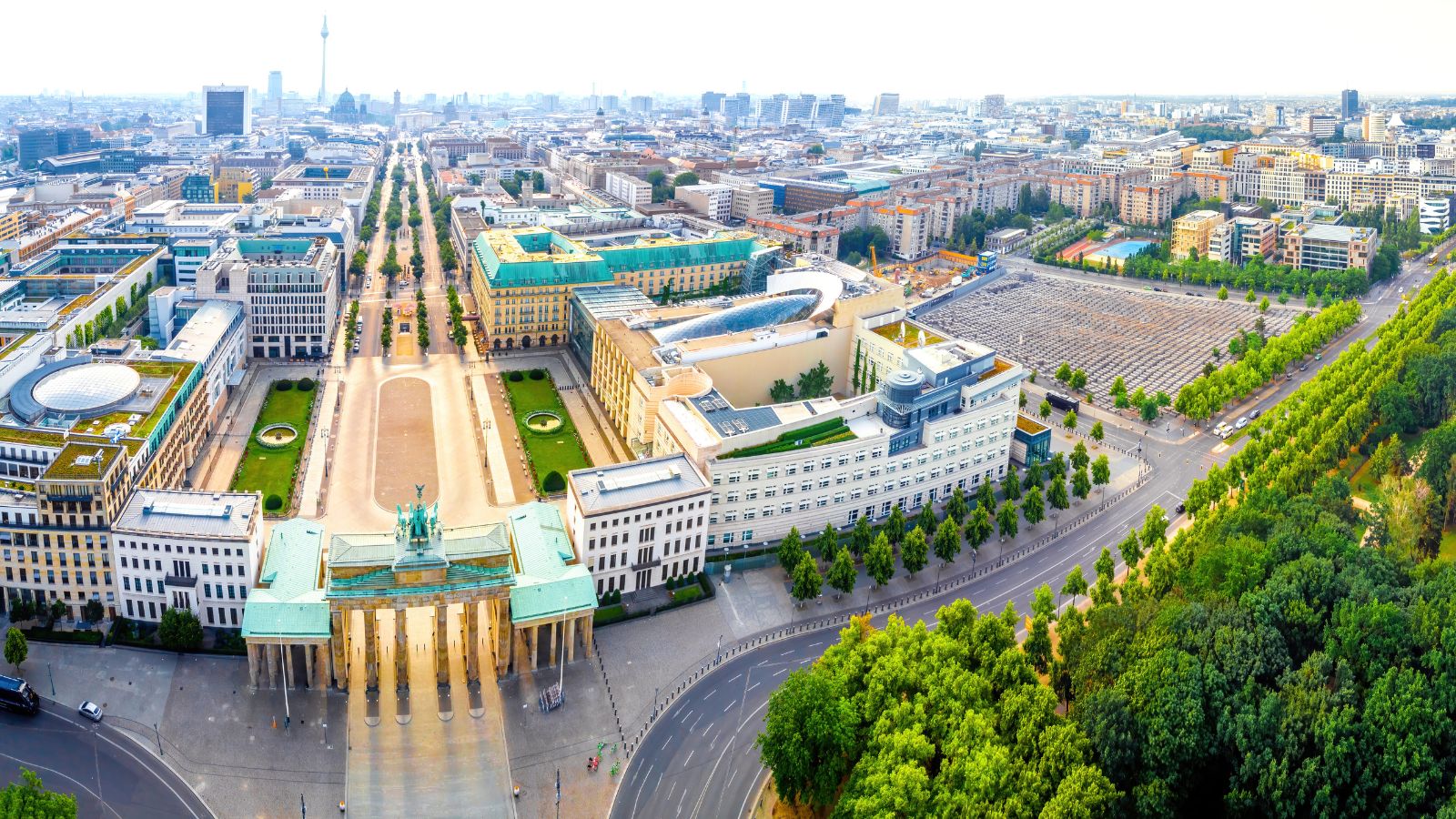
Germany’s capital is a dynamic metropolis that sees historic buildings nestled amongst contemporary architecture.
A cultural hotbed, visit iconic landmarks like the Brandenburg Gate, enjoy diverse culinary delights, and immerse yourself in the impressive arts scene. With trendy neighbourhoods to explore, vibrant nightlife, and world-class hotels, Berlin has a lot to offer.
Munich: Munich Football Arena
- Home Team: Bayern München
- Capacity: 66,000
- Number of games: 6
- Distance from airport (MUC) to stadium: 19km
Home to one of the world's most successful clubs, the stadium, known locally as the Allianz Arena, is a modern architectural marvel. It will host the very first game of the 2024 Euros when Germany entertains Scotland on 14th June. Munich will also welcome the first semi-final match on 9th July.
The City

The Bavarian capital has an enviable reputation for being one of the most liveable cities in the world. Its dramatic city landscape and historic architecture capture a melting pot of culture.
Admire the views from Frauenkirche, experience the Marienplatz, a buzzy square that sits at the heart of the city, and shop high-end fashion on Maximilianstrasse before enjoying the city’s culinary delights at one of the Michelin-starred restaurants.
Be sure to also find time to experience the uber-trendy Gärtnerplatz and Glockenbach neighbourhoods that attract the young and the young at heart.
Cologne: Cologne Stadium
- Home Team: FC Köln
- Capacity: 47,000
- Number of games: 5
- Distance from airport (CGN) to stadium: 20km
The home of some of the Bundesliga's most ardent and passionate fans, the Cologne Stadium, known locally as RheinEnergieStadion, boasts an enthralling atmosphere in which to enjoy top-class matches.
The City
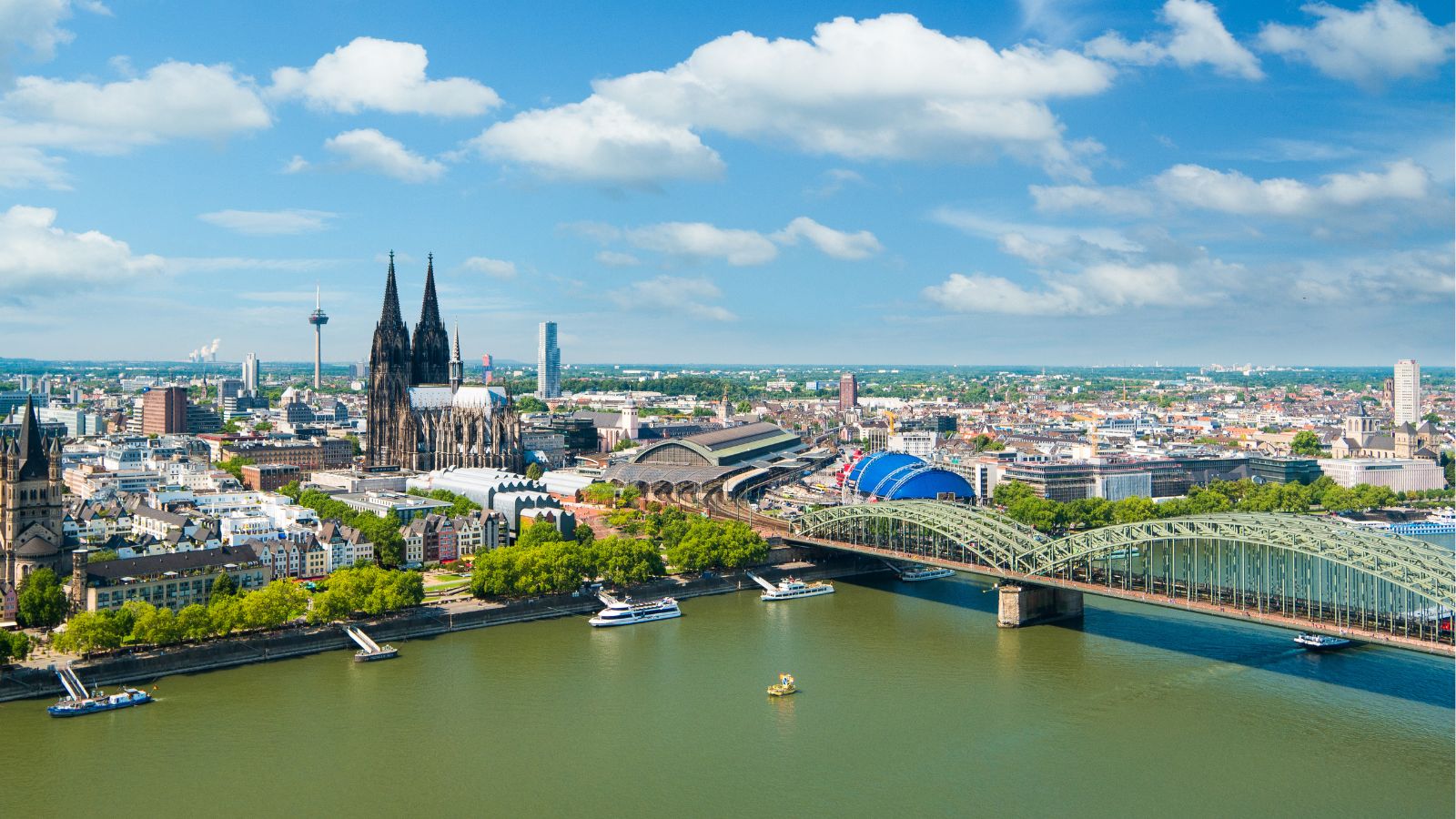
Cologne, or Köln, is Germany's oldest city, with a rich history that dates back over 2,000 years. Situated on the River Rhine, its historic landscape is breathtaking and a visit to the quaint Old Town and the imposing UNESCO-listed Gothic cathedral is a must.
You’ll also find a world-class museum and arts scene in this friendly and fascinating city. Be sure to try a freshly tapped Kölsch, Cologne’s famous beer.
Dortmund: BVB Stadion Dortmund
- Home Team: Borussia Dortmund
- Capacity: 66,000
- Number of games: 6
- Distance from airport (DTM) to stadium: 13km
Undoubtedly one of the most iconic football venues in the world, primarily due to its famous 'Yellow Wall’ stand that reflects the club colours of its home fans, the stadium will host the second semi-final on 10th July, and is guaranteed to be a cauldron of energy.
The City
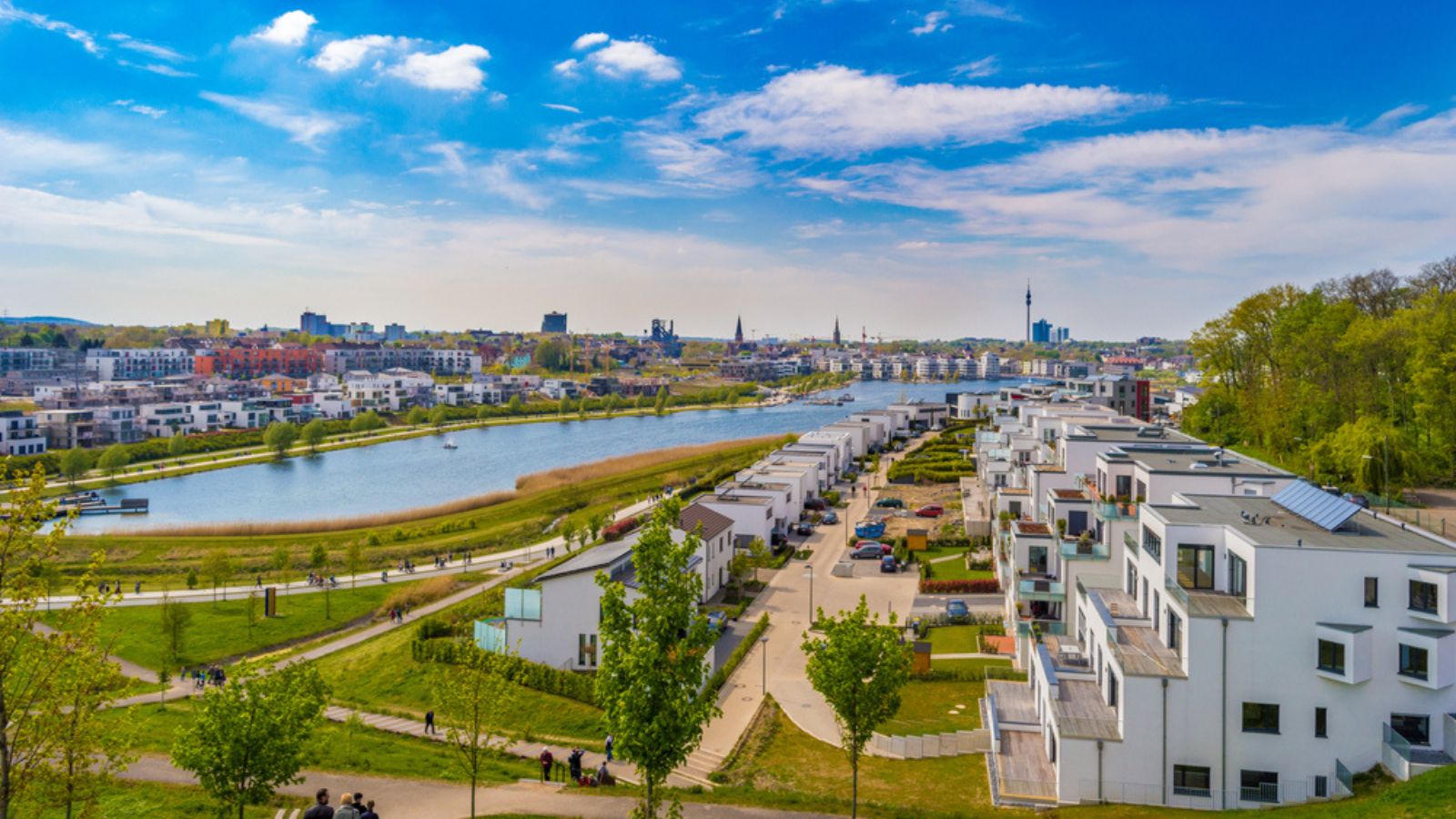
This dynamic city in western Germany offers a unique blend of industrial heritage and contemporary charm.
It is home to high-tech businesses and entrepreneurs, an oasis of open green spaces, an exciting and colourful Old Town, and a vibrant pub and beer scene. The city lives and breathes football, and you’ll find the German Football Museum here.
Hamburg: Volksparkstadion Hamburg
- Home Team: Hamburger SV
- Capacity: 49,000
- Number of games: 5
- Distance from airport (HAM) to stadium: 11km
Built over 70 years ago, the Volksparkstadion was significantly upgraded in 2006 before the World Cup. This unique stadium, located in Germany’s second-largest city, will host one of the quarter-final fixtures.
The City

Situated on one of Europe's major rivers, the Elbe, and home to meandering canals and a world-renowned port, Hamburg offers the perfect blend of maritime heritage and contemporary elegance.
Explore the waterways before basking in the cultural richness of the Kunstmeile, a 1-mile stretch of art galleries, museums, and theatres. Visit the UNESCO-listed Speicherstadt district, wander around Altstadt’s beautiful buildings and high-end boutiques, and immerse yourself in the city’s thriving gastronomic and nightlife scene.
Stuttgart: Stuttgart Arena
- Home Team: VfB Stuttgart
- Capacity: 54,000
- Number of games: 5
- Distance from airport (STR) to stadium: 19km
Known locally as the MHPArena, the stadium has previously hosted games from two World Cup tournaments and a European Cup final. On 19th June it will welcome the host nation, Germany, when they take on Hungary.
The City
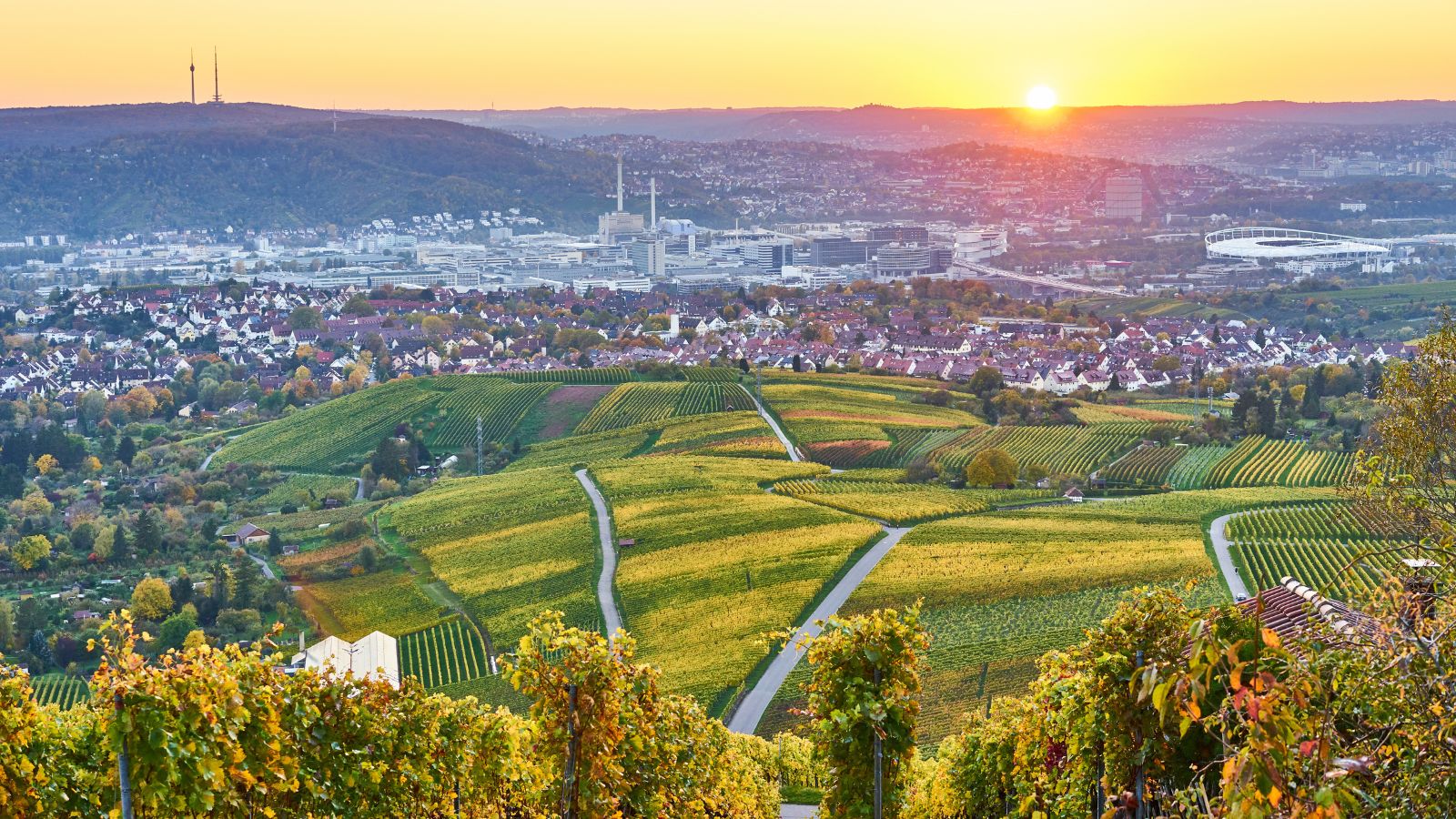
Surrounded by vineyards and green hills, the relatively small city of Stuttgart is home to two giants of the automotive industry – Mercedes and Porsche. For car enthusiasts, the striking Mercedes-Benz Museum displays some fascinating vehicles.
The city also has an enviable reputation for its restaurants, regional delicacies, and fine German wines. Built over a century ago, the Markthalle is well worth a visit.
Gelsenkirchen: Arena Aufschalke
- Home Team: FC Schalke
- Capacity: 50,000
- Number of games: 4
- Distance from airport (DUS) to stadium: 37km
With its slide-out pitch and retractable roof, this state-of-the-art stadium will welcome some of Europe's powerhouse teams, including Spain, Italy, and England.
The City
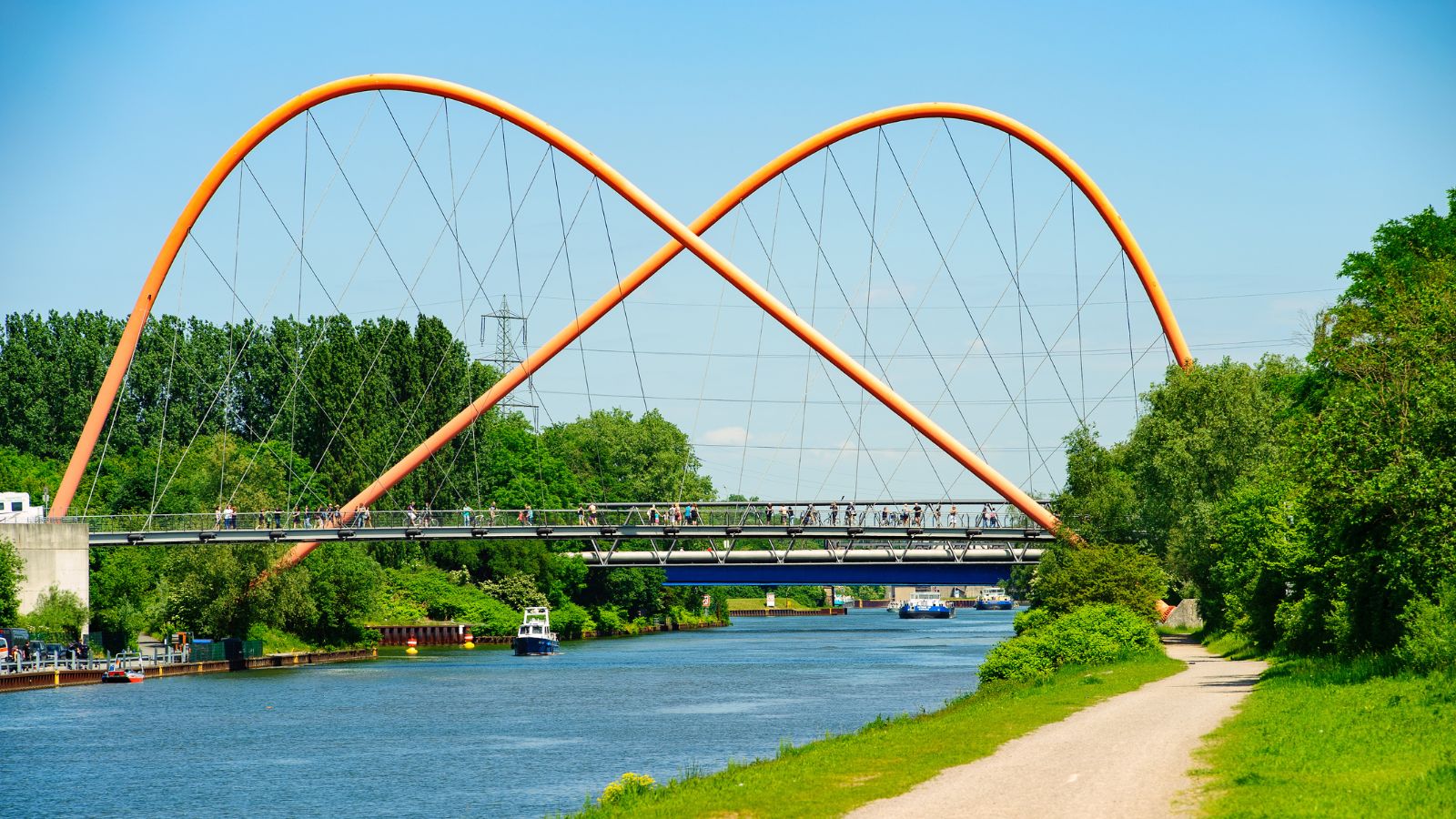
The smallest of the ten host cities, Gelsenkirchen's past is rooted in heavy industry, particularly mining, but has now transformed into a dynamic urban centre full of open green spaces.
Visitors can explore the green expanse of Nordsternpark, with its fine eateries and leisurely boat trips, head to Musiktheater im Revier to take in an opera, ballet, or classical concert, or delve into the industrial past at Schloss Horst. Gelsenkirchen’s warm hospitality and diverse offerings make it an intriguing destination.
Frankfurt: Frankfurt Arena
- Home Team: Eintracht Frankfurt
- Capacity: 47,000
- Number of games: 5
- Distance from airport (FRA) to stadium: 5km
Celebrating its centenary in 2025, the stadium has hosted many major sporting events, including the FIFA Women's World Cup final in 2011.
The City

As Germany’s financial and commerce hub, Frankfurt’s distinct skyscraper-strewn skyline has earned it the moniker ‘Mainhattan’.
This sleek, cosmopolitan city on the River Main is home to illustrious hotels, Michelin-starred restaurants, rooftop bars, and high-end retailers. And, if that wasn’t enough, it also boasts a picturesque Old Town with classic German architecture and an impressive arts scene.
Düsseldorf: Düsseldorf Arena
- Home Team: Fortuna Düsseldorf
- Capacity: 47,000
- Number of games: 5
- Distance from airport (DUS) to stadium: 3km
Also known as Merkur Spiel-Arena, Düsseldorf Arena is a modern stadium complete with a retractable roof. Although it didn't stage any of the 2006 World Cup games, it did, however, host the Eurovision Song Contest in 2011.
The City
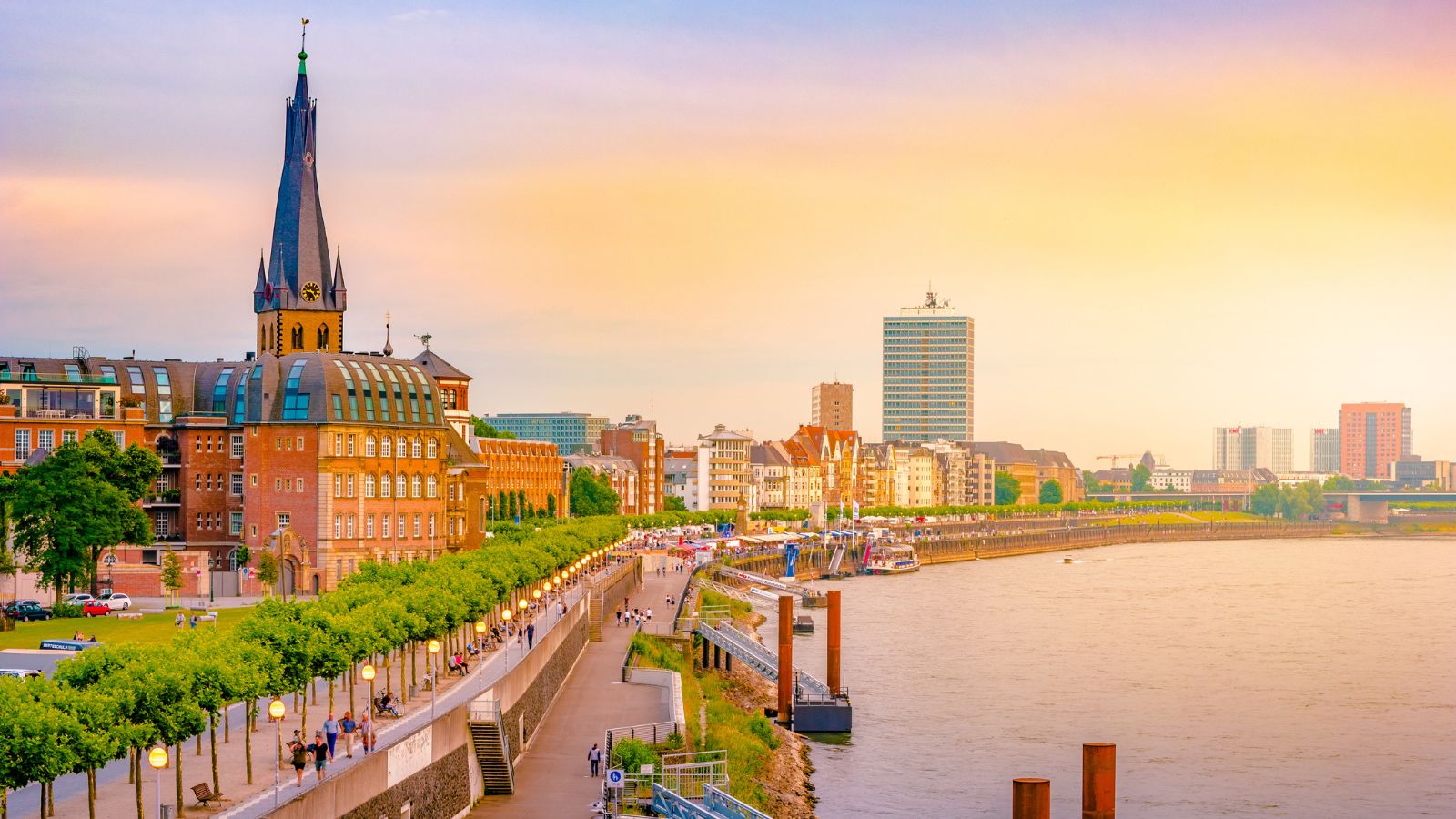
Düsseldorf has all the trappings of a modern, affluent city, from luxurious designer shops to fine restaurants and lavish hotels.
The city is a celebration of Germany’s beer, bar, and restaurant culture, with the Old Town alone being home to over 260 establishments, earning it the nickname ‘the longest bar in the world’! Culturally, it has a thriving contemporary art scene and is influential in the music world too.
Leipzig: Leipzig Stadium
- Home Team: RB Leipzig
- Capacity: 42,000
- Number of games: 4
- Distance from airport (LEJ) to stadium: 12km
Widely referred to as the Red Bull Arena, Leipzig Stadium is a modern masterpiece. It will play host to fans from neighbouring Netherlands and France on 21st June.
The City
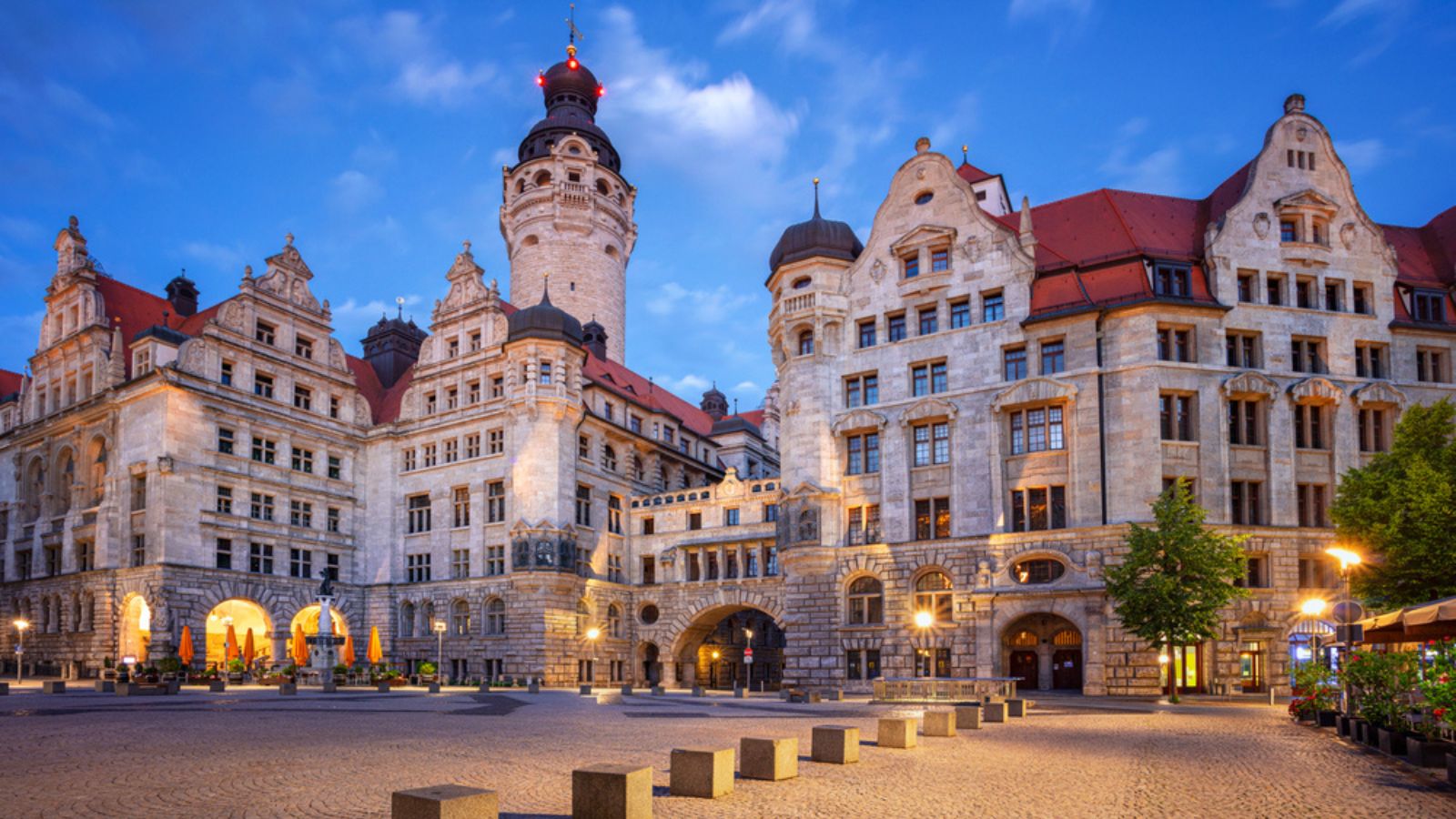
From Wagner to Bach, Mendelssohn to Mahler, Leipzig has a remarkable musical heritage, so it is no wonder it attracts music lovers from all over the world. Leipzig is an affluent city with a solid cultural reputation, reflected in its many art galleries, fascinating museums, and impressive architecture.
For stunning city views, a visit to the restaurant on the 29th floor of the Panorama Tower takes some beating – as does the beer sommelier tasting experience.
Travel by Private Jet Charter
If you are ready to dive into the excitement, explore the exciting host cities, and make your Euro 2024 experience truly extraordinary, our expert group charter or private jets team will be happy to help.
